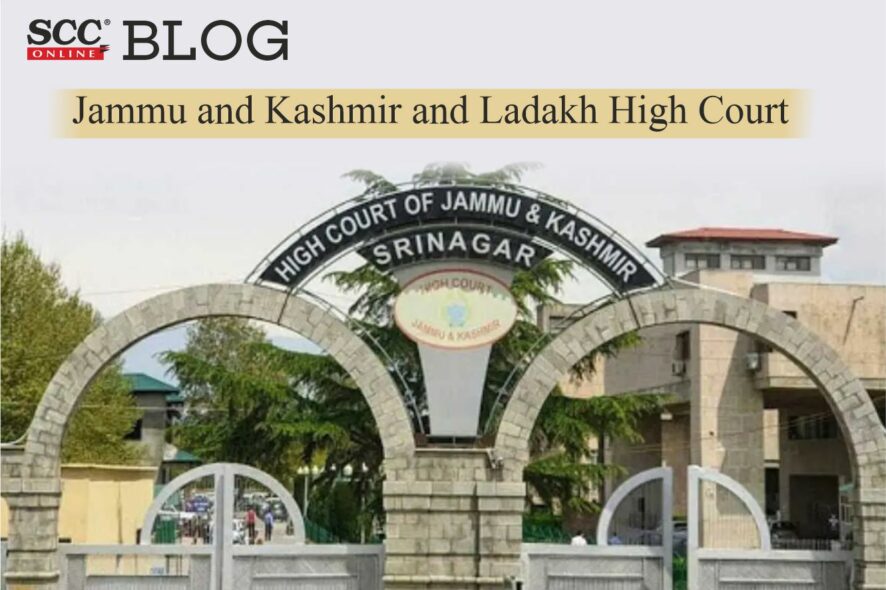Jammu and Kashmir and Ladakh High Court: Moksha Khajuria Kazmi, J. dismissed a petition which was filed assailing the detention order in terms of Section (3) of Prevention of Illicit Traffic in Narcotic Drugs and Psychotropic Substances Act, 1988 (‘NDPS Act’) issued by the Divisional Commissioner, Kashmir (‘Detaining Authority’).
The petition contended that the Detaining Authority had passed the detention order on the basis of grounds of dossier, prepared by the SSP and it was urged that detenue has been falsely implicated in both the FIR’s, the detenue was bailed out by the competent court however after a gap of about two years and six months, detenue has been detained in terms of the impugned detention order on the bias of the material/dossier supplied by SSP. It was contended that the constitutional rights, guaranteed to the detenue stood infringed.
Counsel for respondents in their counter affidavit have resisted the petition on the ground that detention order has been passed in exercise of powers vested with Detaining Authority in terms of section 3 of NDPS Act, with a view to prevent the detenue from indulging in illegal trade of illicit traffic in narcotic drugs and psychotropic substance. It was further stated that the detention order does not suffer from any malice or legal infirmity, inasmuch as, the safeguards provided under the Constitution have been followed while ordering the detention of the detenue, as such, challenge thrown to the impugned order of detention is not sustainable.
The Court noted information received by the police that the detenue has hidden some narcotics in his residential house. Accordingly, police party along with Executive Magistrate reached the house and recovered Charas like substance. Also, on 07-08-2017 during Naka checking the detenue was caught with a polythene bag containing 400 gm of Charas and that despite arrest of the detenue in the aforesaid criminal cases, he has continued to do the same acts.
The Court mentioned that the Supreme Court, in several decisions, has held that even one prejudicial act can be treated as sufficient for forming requisite satisfaction for detaining a person.
“The power of preventive detention is a precautionary power exercised in reasonable anticipation. It may or may not relate to an offence. It is not a parallel proceeding. It does not overlap with prosecution even if it relies on certain facts for which prosecution may be launched or may have been launched. An order of preventive detention may be, made before or during prosecution. An order of preventive detention may be made with or without prosecution and in anticipation or after discharge or even acquittal. The pendency of prosecution is no bar to an order of preventive detention and an order of preventive detention is also not a bar to prosecution. Discharge or acquittal of a person will not preclude detaining authority from issuing a detention order.”
The Court further relied on and reproduced the relevant paragraphs of the Supreme Court judgments in Haradhan Saha’s v. State of West Bengal, (1975) 3 SCC 198, Naresh Kumar Goyal v. Union of India, (2005) 8 SCC 276 and Union of India v. Chaya Ghoshal, (2005) 10 SCC 97 and concluded that it is not the number of acts that are to be determined for detention of an individual, but it is the impact of the act(s) which is material and determinative and in the instant case, acts of detenue relate to drug trafficking, which has posed serious threat, apart from health and welfare of the people to youth, most particularly unemployed youth, to indulge in such nefarious acts. Thus, the petition was dismissed.
[Manzoor Ahmad Lone v. UT of J&K, 2022 SCC OnLine J&K 696, decided on 31-08-2022]
Advocates who appeared in this case :
Sheikh Mohammad Saleem, Advocate, for the petitioner;
Sajad Ashraf, Advocate, for the respondent.
*Suchita Shukla, Editorial Assistant has reported this brief.







